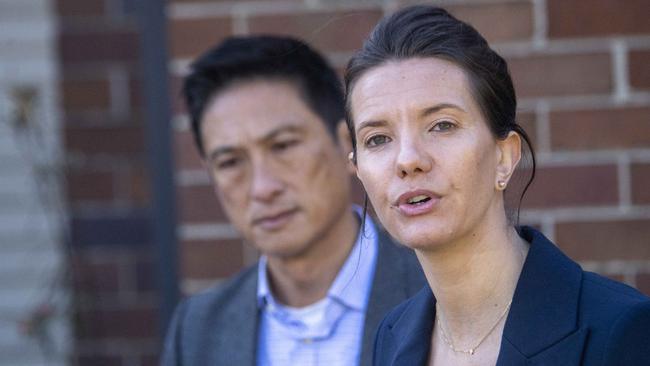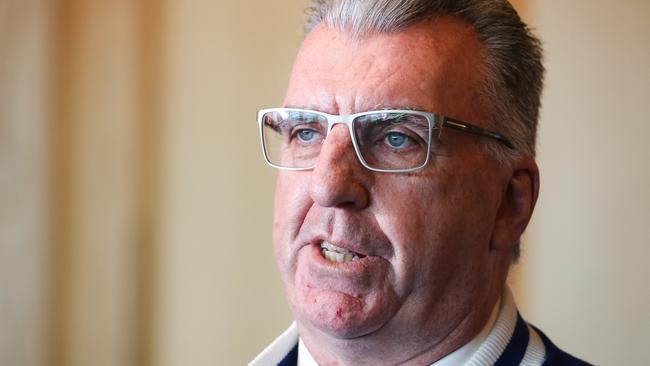Health experts warn mass psychiatrist resignations will be ‘catastrophic’ for hospital patients
A chorus of healthcare professionals warn NSW’s most vulnerable patients are at serious risk of harm after 200 psychiatrists in the public hospital system resigned amid a bitter pay dispute, while the Minster responsible is on holiday.
NSW
Don't miss out on the headlines from NSW. Followed categories will be added to My News.
A chorus of healthcare professionals have warned that the state’s most vulnerable patients are now at serious risk of harm after more than 200 psychiatrists in the state’s public hospital system resigned amid a bitter pay dispute with the Minns government.
While government sources say the Australian Salaried Medical Officers Federation (ASMOF), which represents psychiatrists, has walked away from the negotiating table, it comes at a time when Mental Health Minister Rose Jackson, responsible for leading negotiations, is on holiday with her family in Japan.
Multiple peak medical and patient bodies have called on hundreds of psychiatrists who have threatened to leave the job from January 21 to rethink their industrial strategy in their bid to get a 25 per cent pay rise in one year. The government has offered 10.5 per cent. With less than 300 psychiatrists currently employed full time in the NSW public hospital system, the walkout represents two-thirds of all staff.

Health Services Union secretary Gerard Hayes, who represents paramedics and hospital security, said the resignation tactic would make it harder for his members to do their jobs and endanger those with severe mental health issues.
“It will also affect security officers who under the mental health act can only engage with a patient under the direction of a clinician,” he said.
“I can’t support this type of action. This is a very high stakes game – the mental health of people in the community and in hospitals is as bad as it’s ever been.
“This is not the time to be walking away from that because the community will still be turning up.”

Australian Patients Association chief executive Lisa Robins said the collective resignation would cause “severe harm” to a system already crippled by a shortage of mental health professionals.
“The mass resignation of psychiatrists in NSW risks leaving society’s most vulnerable — those experiencing psychosis, suicidal crises, severe mental distress, or lacking any other support system — without timely access to essential and potentially lifesaving care,” she said.
“I urge psychiatrists who are still able to work to remain engaged within the system. Advocating for change from within, rather than stepping away, will help prevent the severe harm that widespread simultaneous resignations could inflict on patients and the broader healthcare system.”
Australian Medical Association NSW president Dr Kathryn Austin said the mass resignation was “catastrophic for patients and their families” and the sign of “a health system in crisis”.
“This dispute is emblematic of a staffing and budget crisis being felt by doctors, nurses and allied health staff in every specialty at levels we have not seen in NSW in more than two decades,” she said.
In response to the crisis Premier Chris Minns acknowledged that the level of care provided would decrease as a result and said NSW Health would ramp up security in hospitals as an interim measure. He said accepting ASMOFs pay demands, however, was impossible.
“For one psychiatrist, one pay increase would be $80,000 to $90,000 just for the increase in their salary … that is the equivalent of the entire salary of a first year nurse,” he said.
“It is just not justifiable.”

ASMOF NSW acting executive director Ian Lisser said the blame lay with the NSW government, which presided over a “dangerously understaffed mental health service” leaving psychiatrists “little choice” but to resign.
Royal Australian and New Zealand College of Psychiatrists NSW chair Dr Pramudie Gunaratne said Minister Jackson’s absence had further soured negotiations.
“It is disappointing to see the Minister posting pictures of her holidaying overseas while we are facing one of the biggest mental health crises in our state’s history and patients are potentially left without care,” she said.



